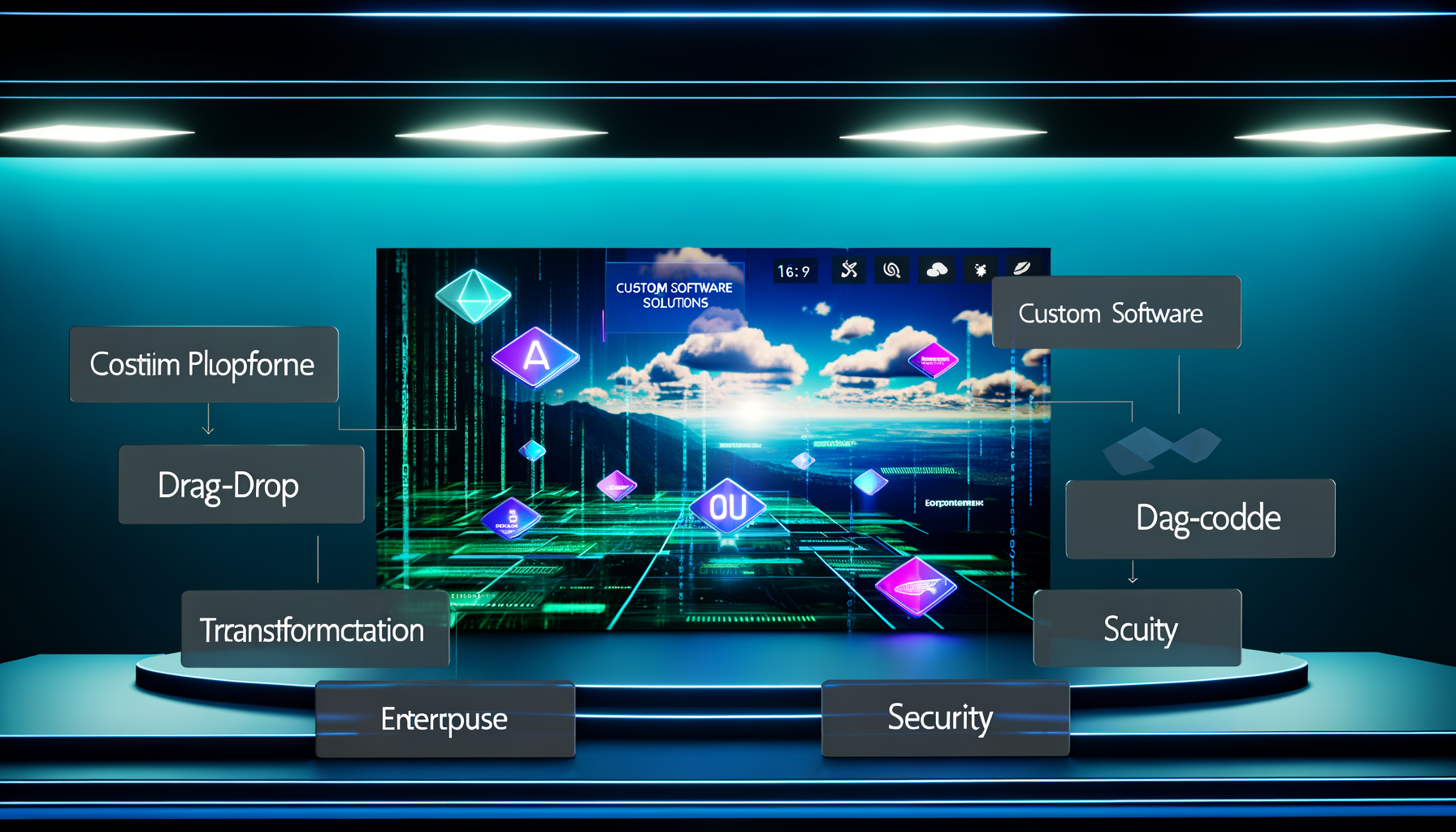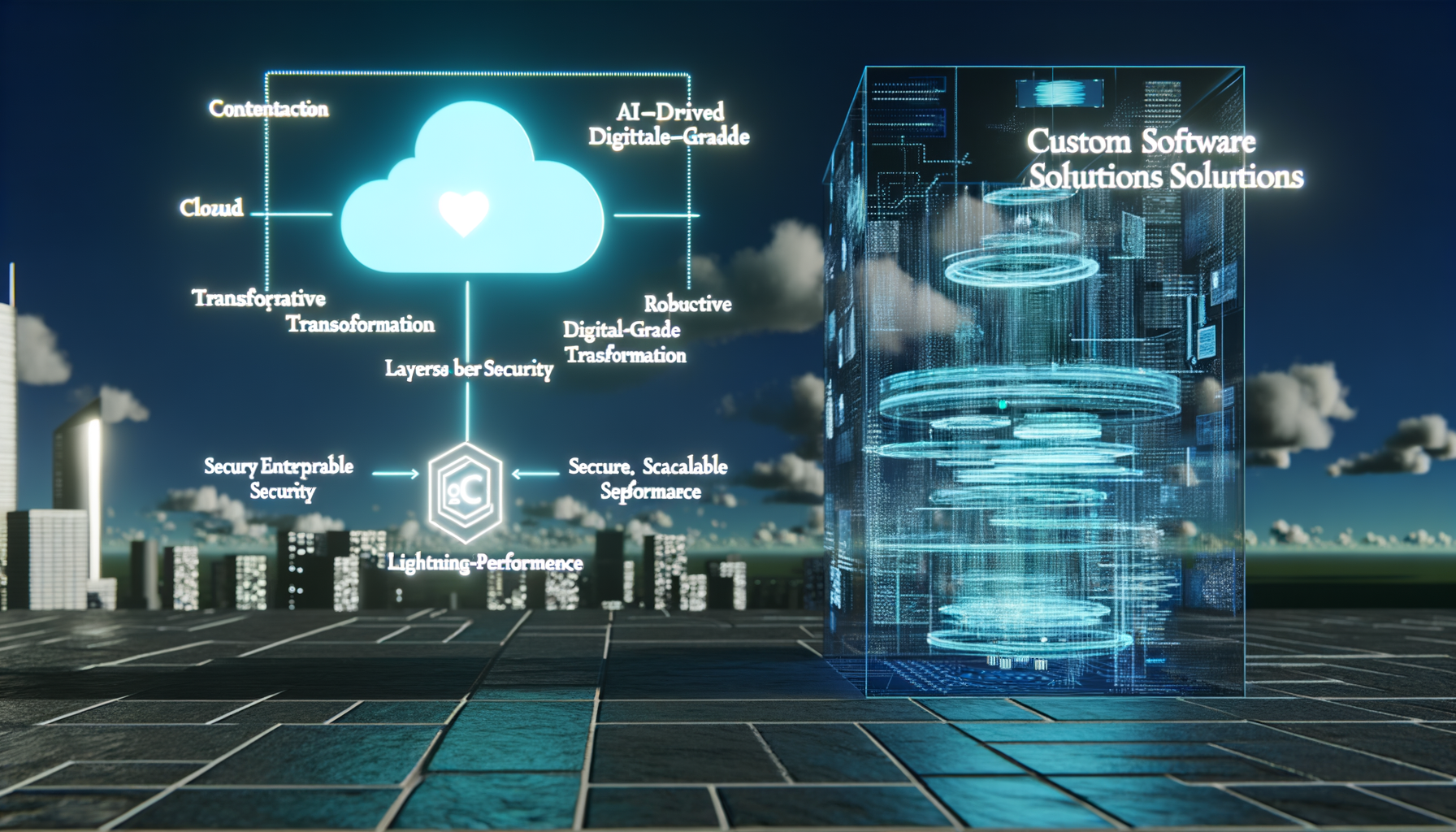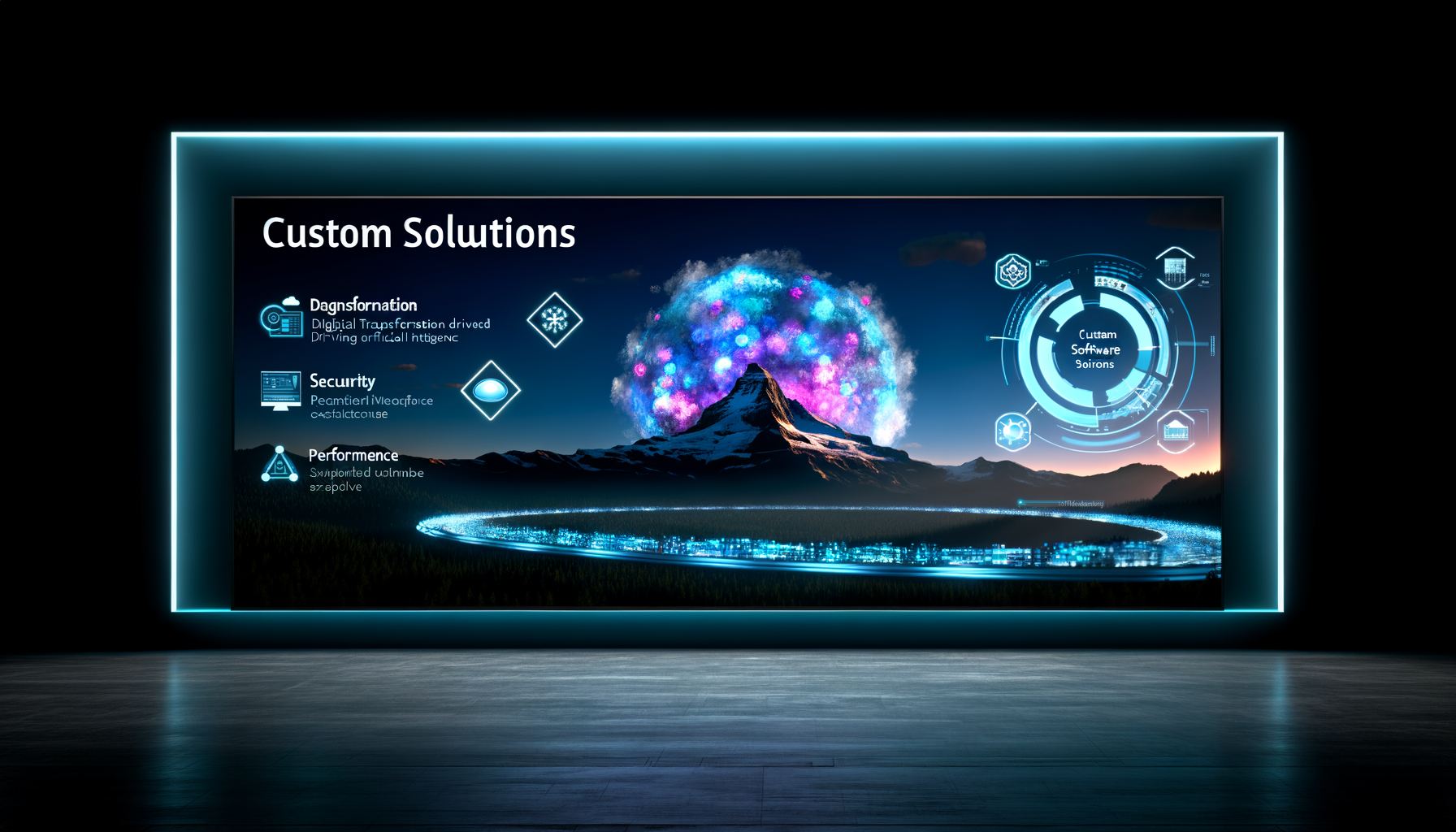Imagine being able to bridge every legacy bottleneck and security gap with a single stroke of innovation. Today, custom software solutions aren't just about coding; they're about transforming how you operate. With 67% of businesses prioritizing digital transformation in 2023, there's no better time to explore custom software (source: Gartner, 2023). In this guide, we'll unravel the secrets behind designing enterprise-grade, tailored applications that are future-proof and lightning-fast.
Why Custom Software?

Team collaborating on custom software development with code on multiple screens.
Custom software is your organization's secret weapon in the battle against inefficiency and outdated technology. By tailoring solutions to your specific needs, you can optimize processes, enhance customer experiences, and achieve measurable outcomes.
Consider this: a tailored SaaS solution could cut operational costs by up to 30% while improving user satisfaction (source: McKinsey & Company, 2023). With such compelling benefits, it's clear why more enterprises are moving away from generic solutions to bespoke software.
Still thinking spreadsheets have a future in your workflow? Let's dive into the broader trends defining custom app development in 2025.
LIST
- •Cost efficiency
- •Enhanced user satisfaction
- •Scalability and flexibility
Key Trends for 2025

Diagram showing the components of a microservices architecture.
As we look towards 2025, several trends are emerging in custom app development, driven by technological advances and shifting business needs.
Microservices architecture and cloud-native applications are at the forefront, offering scalability and resilience. These technologies empower businesses to quickly adapt to changes and scale operations seamlessly.
Moreover, the rise of AI integration continues to influence custom software, enabling enhanced data analytics and personalized user experiences. But how exactly does AI fit into custom solutions?
QUOTE
“The future of custom software is modular, intelligent, and hyper-adaptable.”
AI Integration Benefits

Graph showing the impact of AI on custom software productivity.
Artificial Intelligence is reshaping custom software development by automating routine tasks, improving decision-making, and offering predictive analytics.
For instance, AI can help in developing intelligent CRMs that personalize customer interactions based on real-time data. Imagine a system that not only understands your customer but anticipates their needs.
By integrating AI into custom applications, businesses can significantly enhance their operational efficiency and deliver a more compelling customer experience.
CALLOUT
AI-powered CRMs Predictive analytics Automation of routine tasks
Low-code/No-code Platforms

Visual of a low-code platform interface with drag-and-drop elements.
Low-code and no-code platforms are democratizing software development, allowing non-developers to create powerful applications. These platforms accelerate development cycles and reduce costs, making them ideal for businesses with limited tech resources.
In fact, by 2023, it's expected that over 65% of application development will involve low-code or no-code technology (source: Forrester, 2023).
With these platforms, you can quickly prototype, test, and deploy applications, ensuring that your business stays ahead in a fast-paced market.
LIST
- •Rapid prototyping
- •Cost reduction
- •Increased accessibility
Security Considerations

Diagram showing layers of security in custom software applications.
Security is paramount in custom software development. As cyber threats evolve, ensuring robust security measures are integrated from the start is crucial.
Quicklook's expertise in enterprise security means we can build solutions that not only meet but exceed industry standards. From encryption to multi-factor authentication, our custom solutions are designed to protect your data and your reputation.
Remember, in the world of software, security should never be an afterthought.
QUOTE
“Proactive security in custom software is a non-negotiable in today's digital landscape.”
Frequently Asked Questions
QWhat are the latest trends in custom app development for 2025?
QHow can AI integration enhance custom software solutions?
QWhat are the benefits of using low-code/no-code platforms in custom app development?
Conclusion
Custom software solutions are pivotal for businesses aiming to modernize and outperform competitors. From AI integration to leveraging low-code platforms, the potential is vast.
Future Vision
As we move towards 2025, staying ahead requires embracing these innovative strategies.
Schedule your AI audit with Quicklook.
